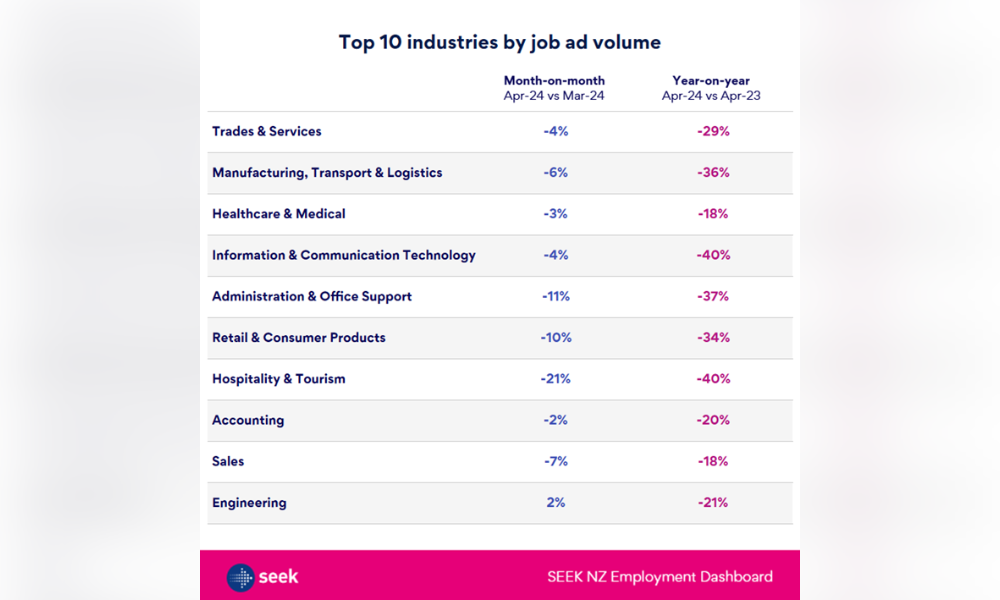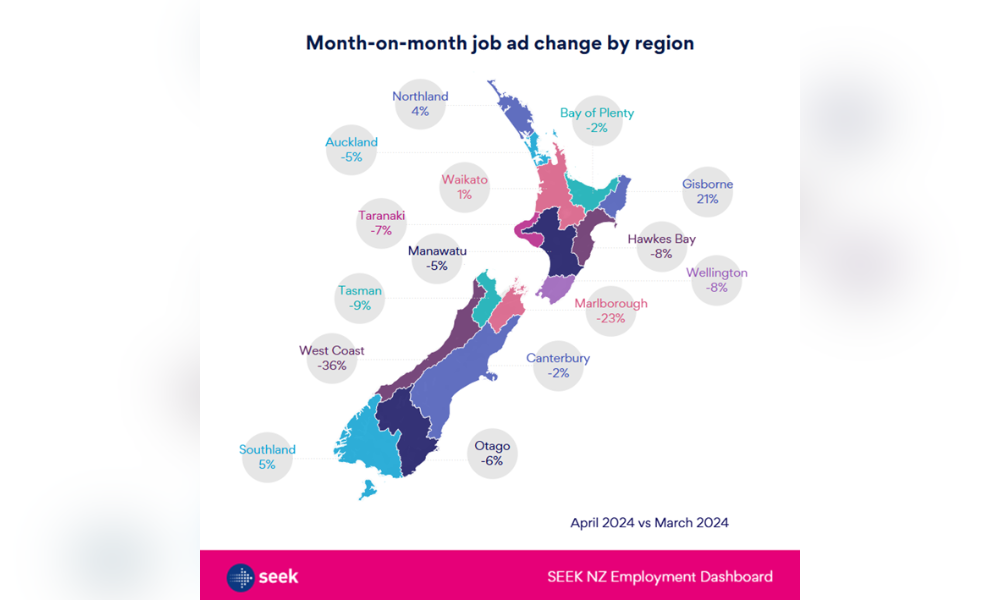Sectors and regions hit hard

Job advertisements have seen a significant nationwide decline, dropping 30% in the year ending April 23, with provincial areas especially hard-hit, Seek NZ Employment Dashboard data showed.
Seek NZ employment figures showed that Wellington experienced a 44% reduction, influenced heavily by redundancies and cuts in the government sector. The West Coast faced an even steeper decline at 54%.
Provincial impacts and economic forecasts
Seek NZ figures also showed that provincial areas such as Tasman, Marlborough, Taranaki, Manawatū, and Northland have all recorded substantial decreases in job advertisements, year-on-year, Stuff reported.
Brad Olsen (pictured above), Infometrics chief economist, commented on the broader economic implications.
“Our expectation is that interest rates will continue to be high, reducing the amount of additional money in the economy, and won’t decline until the end of the year,” Olsen said.
He also predicted a rise in unemployment to 5%.
Sector-specific reductions
The downturn has been universal across employment sectors.
Information technology and hospitality and tourism have been the hardest hit, each with a 40% drop in job ads. Other sectors like administration, office support, manufacturing, transport, logistics, and retail also saw significant declines.

Regional outlook and migration effects
Despite the gloomy job advertisement statistics, there are regional variations in economic sentiment.

Business Canterbury chief executive Leeann Watson highlighted that despite rising costs, business confidence in Canterbury was higher than in other parts of the country.
“We’ve had the highest internal migration for the second year running, both from overseas and from around the country,” Watson said.
Meanwhile, South Canterbury Chamber of Commerce chief executive Wendy Smith remarked on the labor market dynamics.
“The lower number of jobs being advertised in general reflects both an increase in available labour due to higher immigration, and hence roles being filled, and a softening of some markets with a slowing economy,” Smith told Stuff.
See the Stuff report here.
Get the hottest and freshest mortgage news delivered right into your inbox. Subscribe now to our FREE daily newsletter.



